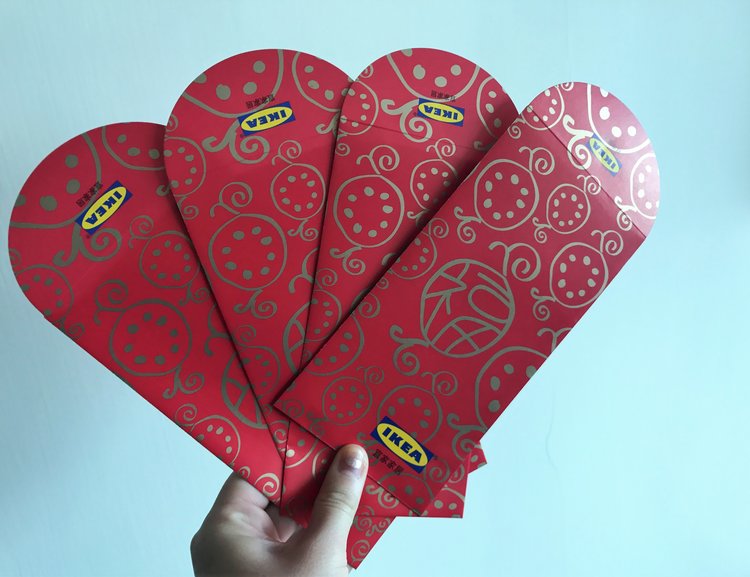Preparing red packets for Chinese New Year | 10 do's and don'ts
T’was the week of Chinese New Year and all through the house, not a creature was stirring, there was no such racket, as Lauren scrambled and raced to fill the red packets! It's almost time to celebrate my first Chinese New year in Hong Kong! There are many traditions and customs associated with Chinese New Year, so stay tuned for more posts, but today I want to share the do’s and don’ts surrounding the giving and receiving of red packets, or lai see.
If you’re an expat like me or new to the area and want to get involved but aren’t sure what to do, have no fear! I’ve done my research and have prepared a list on the etiquette of giving and receiving red packets.
But first, let’s tackle a few basic questions:
What are red packets, or lai see?
Red packets are envelopes filled with money that are gifted to relatives, friends and colleagues throughout the two weeks of Chinese New year. Red packets symbolize prosperity, so to give them to those around you means that you’re wishing them good fortune and wealth in the year to come.
To whom do I give? And how much?
Below is a helpful chart. Always remember to go from old to young. It is tacky to give to people at work who are more senior than you, and never allow your kids to give packets. Same principle. Just remember: the closer the relationship, the more you might want to consider giving. The following dollar amounts are in Hong Kong dollars.
Security guard / door man / building management / cleaning staff
$20 - $50 per person, more if you’re in a smaller building with a single guard/cleaner
Helper / driver
$100 (for part-time helpers) - $500
Staff (if you’re the boss)
$50 - $500
Colleagues and friends
$20 - $100
Waitress or waiter/ barista / anyone who serves you regularly
$20 - $50
Hairdresser, manicurist, massage therapist, etc.
$50 - $100
Where can I find red packets?
Red packets are available at stationery stores, street markets and pop-up stalls and shops all over town. I even got a few at Ikea. Sometimes your company will also distribute red packets, that’s what we’ll be using.
The Giving and Receiving of Red Packets
Here's what you should do:
DO
Fill your packets with fresh, crisp bills. Long lines start forming at banks in the week leading up to Chinese New Year, as many trade in old bills for new ones. So, prepare early to avoid the wait.
DO
Give your dollar amounts as a single note, not multiple notes and never coins. It is not uncommon to give someone two or more red packets at a time. Since Hong Kong Dollars come in increments of $10, $20, $50, $100, $500 and $1,000, it’s ok to include multiples. For example, if you want to give someone $200, you would give them two envelopes, each containing $100.
DO
Give your dollar amounts in even quantities only. Odd numbers are reserved for funerals.
DO
When giving and/or receiving your red packet, always accept and give with both hands. In fact, I’ve learned after living in Hong Kong for a few months that it’s typical to always give and receive everything with both hands, not just red packets.
DO
When receiving red packets, be sure to greet the giver properly. Here are a few phrases that might be helpful to memorize.
DO
Watch your tones! Lai see with a slight alteration in tone can go from telling someone to have “good fortune” to instead, “lick shit”. Probably not a good way to start the new year.
Here’s what you shouldn’t do:
DON’T
Give a dollar amount with the number four ($40 or $400). The number four in Cantonese, say, is one tone different from the word “death”. It is bad luck. This is also why most elevators in Hong Kong don’t acknowledge the 14th floor.
DON’T
Open your red packet in front of the person who gave it to you. Open it in private, away from others, as to not be boastful.
DON’T
Take a red packet unless it is handed to you. Sometimes at parties, red packets will sit out as decoration. That does not mean they are for the taking.
DON’T
Feel discouraged. If you want to get involved, but don’t want to participate with red packets, a small gift is also ok. Many give chocolate gold coins, or Ferrero Rocher golden chocolates.
Kung Hei Fat Choi! (Happiness and prosperity)

